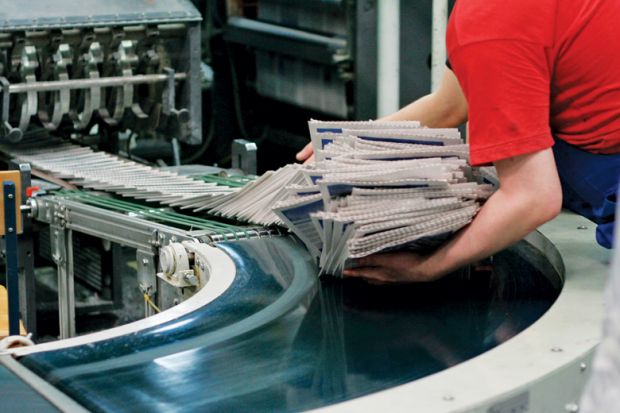Essay mills should be barred from advertising in public places and blocked from internet search engine results, the higher education watchdog has said.
The Quality Assurance Agency has also called on the government to consider legislating to ban custom essay writing services, amid warnings that students’ use of them poses a serious risk to academic standards.
The first major review of the issue by a sector agency, published by the QAA on 18 August, says that the scale of the problem is difficult to quantify but that the proliferation of ghostwriting websites indicates that it is a growing phenomenon.
The QAA’s report quotes research that suggests that essays can be purchased to specification online for as little as £15, with a turnaround time as short as one day, while one site offers to provide a 100,000-word PhD thesis in English literature within a week for a fee of £6,750.
In particular, international students who struggle with English-language university study but are determined to achieve a qualification “may resort to cheating”, the report says, with parental and financial pressure, poor time management and sheer laziness also cited as reasons why learners turn to essay mills.
“If students submit work that is not their own, it compromises the fairness of the assessment process, brings the validity of their qualification into question and poses a threat to the reputation of UK higher education,” said Ian Kimber, the QAA’s director of quality development. “There are also potentially serious ramifications for the public if people who falsely claim to be competent as a result of an academic award enter a profession and practise.”
The QAA is planning to lodge a formal complaint with the Advertising Standards Agency using a sample of firms that do not clearly state that their products are for research purposes only.
After the controversial appearance of posters for a website called OKessay on the London Underground this year, the QAA plans to approach other organisations that offer advertising space to ask them not to allow promotion by custom essay writing services.
The watchdog will also ask major search engines to block essay mills from their results and will also speak to universities about what they could do to limit promotion, since they could potentially restrict students’ access to such websites via institutional wi-fi and computers.
The report recommends that the government should consider introducing a criminal offence of aiding or enabling, for financial gain, individuals to commit acts of academic dishonesty. New Zealand and some US states have already introduced similar legislation.
But the QAA acknowledges that a regulatory approach could not work in isolation, since many of the essay mills examined by the watchdog appeared to be based overseas, or were difficult to trace.
Thomas Lancaster, associate head of the School of Computing, Electronics and Mathematics at Coventry University and an expert on essay mills, said that the QAA report was a “very positive move forward” but added that universities had an important role to play too, through course design.
“There are still courses that are 90 per cent essays or where staff essentially use the same assignment year-on-year,” he said. “That provides temptation for students to cheat.”
Register to continue
Why register?
- Registration is free and only takes a moment
- Once registered, you can read 3 articles a month
- Sign up for our newsletter
Subscribe
Or subscribe for unlimited access to:
- Unlimited access to news, views, insights & reviews
- Digital editions
- Digital access to THE’s university and college rankings analysis
Already registered or a current subscriber? Login










